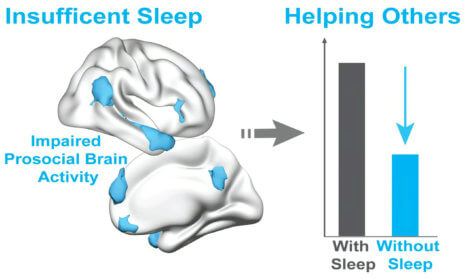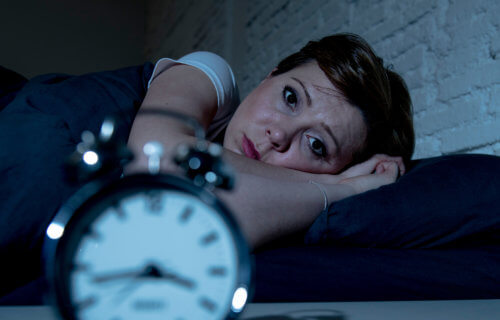BERKELEY, Calif. — A bad night of sleep may actually affect how supportive and charitable you are, a new study reveals. Researchers from UC Berkeley have discovered that even an hour of sleep deprivation causes people to withdraw from helping others.
The team even found that people are less likely to donate to charity after losing an hour of sleep due to Daylight Saving Time. Moreover, the study shows that this behavior is the result of disruptions in the prosocial cognitive network of the brain after someone loses sleep.
Researchers Eti Ben Simon and Matthew Walker say our willingness to help others is a fundamental part of society. In their experiment, they examined how sleep loss disrupts this particular human behavior.
First, the team used a self-reported altruism questionnaire to assess a group of participants’ willingness to help others after a normal night of sleep and after a night of bad sleep. These volunteers also underwent fMRI imaging to assess their brain activity after each night.
READ: Top 4 Mattresses Most Frequently Recommended By Leading Experts
Next, the team gave the altruism questionnaire to a group of people after they kept sleep diaries evaluating sleep quality and quantity for a period of time. Lastly, the researchers gathered data on charitable donations in the U.S. in the weeks before and after people typically lose an hour of sleep to Daylight Saving Time.
Lack of sleep literally changes the brain
The brain scans reveal sleep deprivation dampens activity in the social cognition brain network. This region is typically more active during pro-social behaviors. This disruption in prosocial brain activity displayed a connection to the participants admitting that they had less desire to help others during the first two experiments.
In terms of giving actual money to charity, the study also found that donations dropped off by 10 percent after Daylight Saving Time.

Study authors say their findings could help organizations better time their donation drives to avoid periods when people are less likely to help others and more likely to be suffering from a lack of sleep.
“Helping is a core, fundamental feature of humankind. This new research demonstrates that a lack of sleep degrades the very fabric of human society itself. How we operate as a social species — and we are a social species — seems profoundly dependent on how much sleep we are getting,” Walker says in a media release.
The findings are published in the journal PLoS Biology.

